Non-violence requires a double faith, faith in God and also faith in man
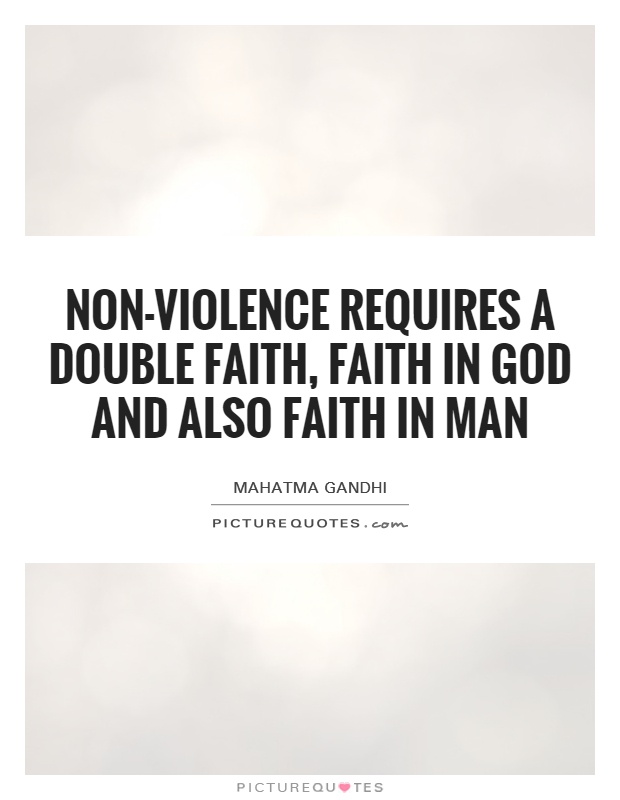
Faith QuotesMahatma Gandhi QuotesFaith In God QuotesFaith And God QuotesGod And Faith QuotesNon Violence Quotes
Non-violence requires a double faith, faith in God and also faith in man
Mahatma Gandhi, the father of the Indian independence movement, was a staunch advocate of non-violence as a means of achieving social and political change. He firmly believed that non-violence required a double faith - faith in God and faith in man. Gandhi's philosophy of non-violence, or ahimsa, was deeply rooted in his spiritual beliefs and his unwavering faith in the inherent goodness of humanity.Gandhi's faith in God was central to his commitment to non-violence. He believed that all life is sacred and that violence against any living being is a violation of the divine order. Gandhi saw God as the ultimate source of truth, love, and justice, and he believed that by aligning oneself with these divine qualities, one could overcome the temptation to resort to violence. For Gandhi, non-violence was not just a political strategy, but a spiritual discipline that required individuals to cultivate a deep connection with the divine.
In addition to his faith in God, Gandhi also had faith in the inherent goodness of humanity. He believed that every person has the capacity for compassion, empathy, and moral courage, and that by appealing to these qualities, individuals could be inspired to act with non-violence. Gandhi famously said, "I believe in the essential goodness of human nature. I believe in the power of the human spirit to overcome adversity and to strive for a better world."
Gandhi's faith in man was put to the test during India's struggle for independence. Despite facing violent repression from the British colonial authorities, Gandhi and his followers remained committed to non-violence. Through acts of civil disobedience, peaceful protests, and non-cooperation, they were able to mobilize millions of Indians in a mass movement for independence. Gandhi's unwavering faith in the power of non-violence to bring about social change ultimately proved to be successful, as India gained independence in 1947 without resorting to armed conflict.


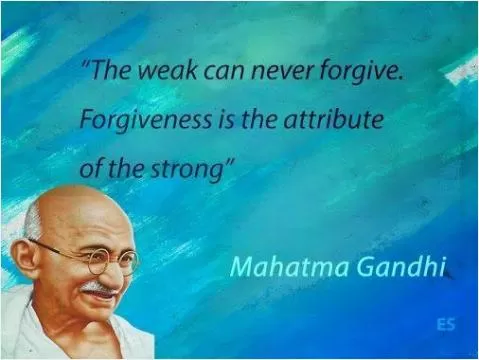

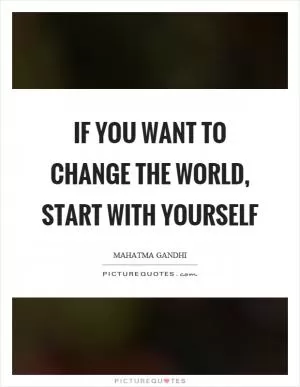
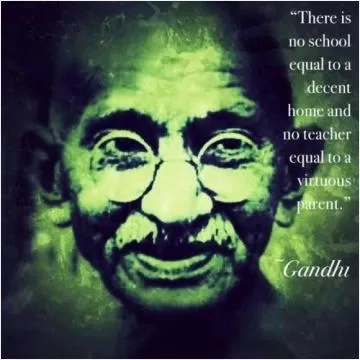



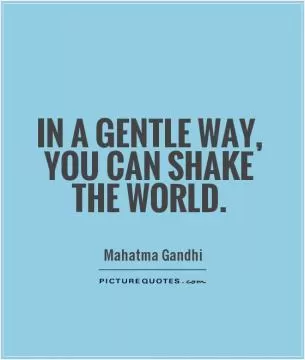
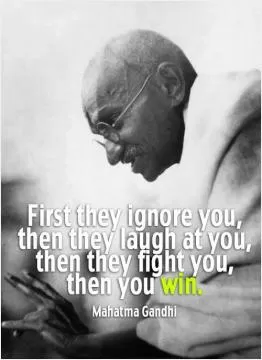

 Friendship Quotes
Friendship Quotes Love Quotes
Love Quotes Life Quotes
Life Quotes Funny Quotes
Funny Quotes Motivational Quotes
Motivational Quotes Inspirational Quotes
Inspirational Quotes